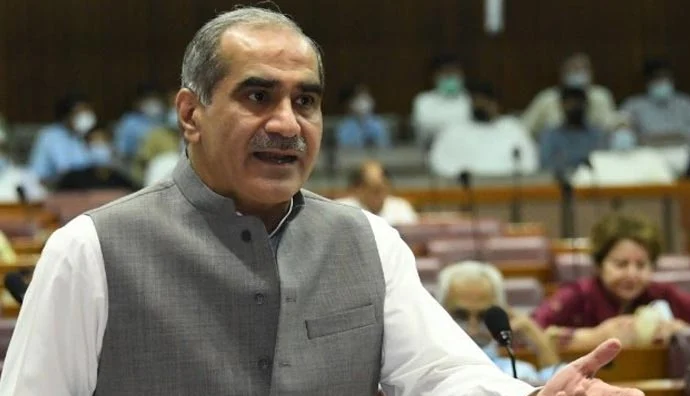Aviation Minister Khawaja Saad Rafique on Friday defended outsourcing of Islamabad Airport while speaking on floor of the House.
During the National Assembly session, he revealed the government’s plan to outsource the Islamabad Airport for a period of 15 years.
He clarified that while navigational services and runway operations would remain under the control of the Civil Aviation Authority (CAA), the remaining services would be handed over to private operators.
Efforts to outsource airports had been initiated by the finance ministry earlier, and now the focus is solely on the Islamabad Airport as a pilot project.
Minister Rafique assured the lawmakers that the outsourcing process would be carried out transparently, adhering to public procurement rules and following the guidelines set by the private-public partnership authority.
He mentioned that a competitive bidding process would be conducted, and already, 12-13 companies had shown keen interest in participating.
Addressing concerns about job security, the minister emphasized that outsourcing did not imply job cuts.
He affirmed that all existing employees at Islamabad Airport would retain their positions and would continue to receive their salaries.
“This will be Pakistan’s first airport to be outsourced, and we are committed to implementing the best international practices,” he maintained.
He cited successful examples of airports outsourced by the neighboring countries like India, where several airports had been efficiently managed by private operators.
Looking ahead, Rafique revealed that after the Islamabad Airport, the government planned to outsource operations at Lahore and Karachi airports as well.
During the session, Minister Rafique also made a case for privatizing the national flag carrier, Pakistan International Airlines (PIA).
He pointed out that the airline’s deficit had reached a staggering Rs80 billion this year, and without restructuring, it could balloon to Rs259 billion by 2030.
To ensure the financial viability of PIA and protect the interests of its employees, he advocated for the creation of a holding company to oversee its operations and liabilities, which currently stand at Rs742 billion.
“The state cannot run it. The state can [only] ensure that no employee of PIA should be rendered jobless,” he asserted, drawing parallels with the successful privatization of airlines in other countries.



